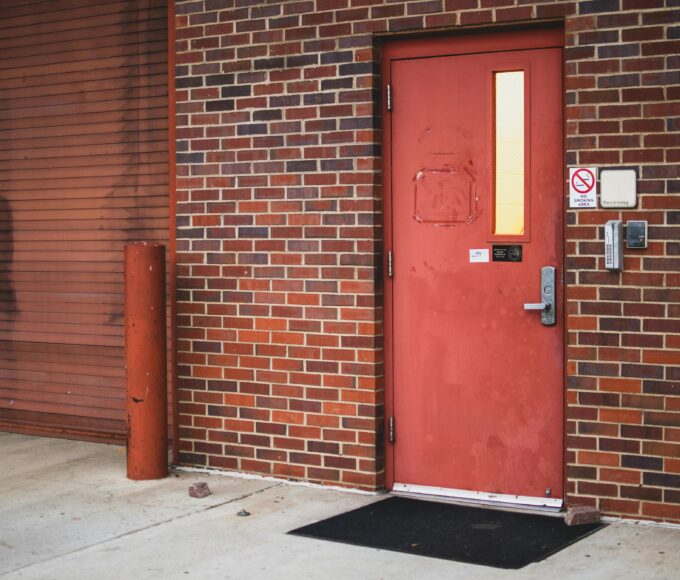Keeping your electronics and screens clean is essential not only for hygiene but also for maintaining their performance and longevity – however, if not done correctly, cleaning these delicate devices can cause damage. To ensure that you’re cleaning your electronics safely and effectively, here’s a step-by-step guide that will help you avoid common pitfalls while ensuring your gadgets stay in top shape.
Gather the Right Supplies
Before diving into the cleaning process, it’s crucial to use the appropriate cleaning tools and products. Harsh chemicals or abrasive materials can easily scratch or damage sensitive surfaces. Here’s what you’ll need:
- Microfibre cloths: These are soft, non-abrasive cloths that are perfect for wiping down screens and electronics without scratching them.
- Distilled water: Tap water can contain minerals that might leave streaks or cause damage over time.
- Isopropyl alcohol (70% or less): This alcohol is ideal for cleaning surfaces without leaving behind residue, but ensure the concentration isn’t higher than 70%.
- Compressed air: For dusting out small crevices like keyboard keys or ports, compressed air is an excellent choice.
- Cotton swabs: These help reach the tiny areas around buttons and ports.

Turn Off and Unplug the Device
Safety is a priority when cleaning electronics. Always turn off your device and unplug it before you begin cleaning – this reduces the risk of short-circuiting and protects you from potential electric shocks. It also allows the screen to cool down, making it easier to see smudges or dirt that need attention.
Wipe Down Screens with a Dry Microfibre Cloth
Start by gently wiping the screen with a dry microfibre cloth to remove dust, fingerprints, and smudges. Use gentle, circular motions to avoid pressing too hard, which could damage the display. Do not use paper towels or tissues, as they can be too abrasive and leave lint behind.
Create a Safe Cleaning Solution
If the dry cloth isn’t enough to remove stubborn spots, it’s time to use a cleaning solution. A 1:1 mixture of distilled water and isopropyl alcohol is usually safe for most electronics. Spray the solution onto a microfibre cloth – never directly onto the screen or electronic device. Excess liquid can seep into the device and cause internal damage.
Gently Clean the Surface
Using the slightly damp microfibre cloth, gently wipe the screen or electronic surface. Focus on areas with smudges or fingerprints, but avoid excessive pressure. If needed, use a dry portion of the cloth to remove any excess moisture and prevent streaks.
Tackle Dusty Areas with Compressed Air
For cleaning ports, vents, or keyboard keys, compressed air is your best friend. Hold the can of compressed air upright and use short bursts to blow dust out of the tiny crevices. Be sure not to spray too closely or for too long, as this can cause moisture to build up, which could damage internal components.
Use Cotton Swabs for Precision Cleaning
To clean tight spots like around buttons or charging ports, lightly dampen a cotton swab with your cleaning solution and carefully wipe those areas. Be cautious not to push any liquid inside the device, as this can cause damage over time.

Avoid Common Mistakes
While cleaning electronics is relatively straightforward, there are a few common mistakes to avoid:
- Avoid harsh chemicals: Products like window cleaner, bleach, or vinegar are too abrasive for most screens and electronic surfaces and can cause permanent damage.
- Don’t oversaturate your cloth: Too much liquid can seep into the device and potentially cause short-circuiting.
- Never spray directly onto the device: Always spray onto the cloth first to control the amount of moisture and prevent it from entering the device.
Maintain a Regular Cleaning Schedule
To keep your electronics in pristine condition, it’s best to clean them regularly. For devices like phones and tablets, aim for a wipe-down at least once a week, while larger items like TVs and computer monitors can be cleaned less frequently, around once a month.
Consider Professional Help for Thorough Cleaning
For larger office spaces or commercial environments, maintaining the cleanliness of all electronics can be a time-consuming task. In such cases, it’s beneficial to consider professional office cleaning services. Professional cleaners are equipped with the right tools and knowledge to safely clean all types of office electronics without causing damage, ensuring your work environment stays hygienic and your equipment remains in excellent condition.
Ready to get started?
By following these simple yet effective cleaning tips, you can keep your electronics and screens looking and functioning like new for longer. Just remember to always use the correct cleaning tools, avoid harsh chemicals, and take your time to prevent any accidental damage. With regular care and attention, your electronics will continue to serve you well into the future.
















